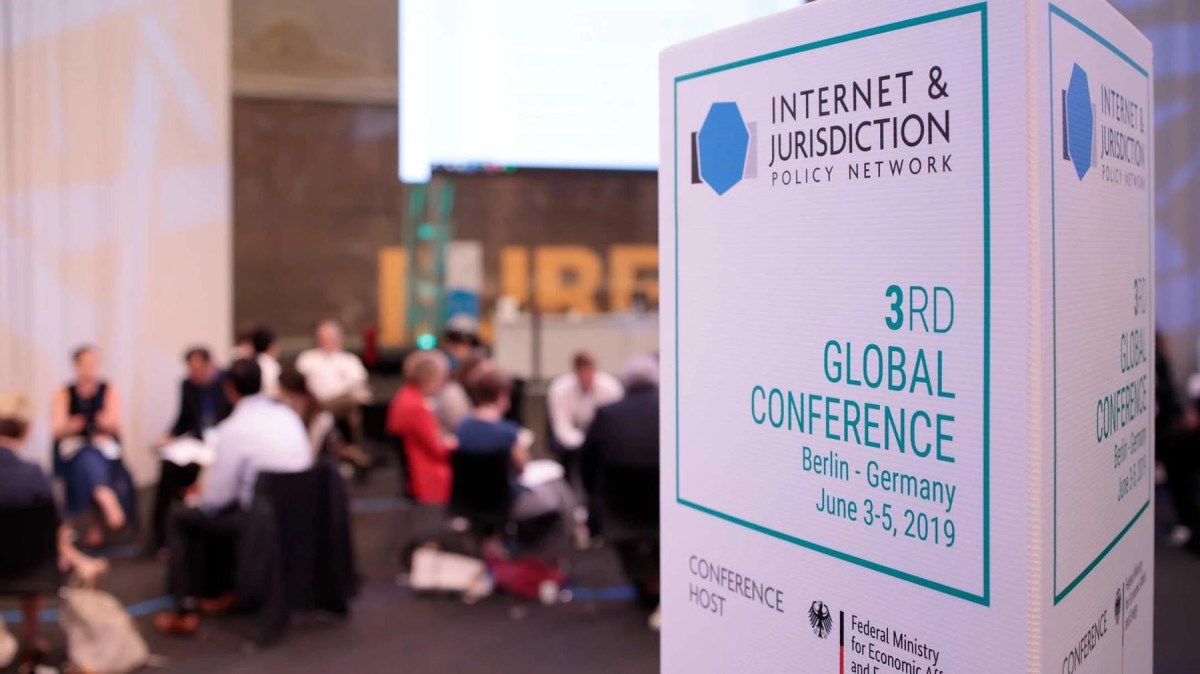On 1 December 2014, the Telecommunications Industry Dialogue and the Global Network Initiative (GNI) held the second of their two Joint Learning Forums for the year 2014. The Geneva Internet Platform (GIP) hosted the event, which focused on Transparency and Human Rights in the Digital Age and featured participants from the ICT industry, civil society organizations, governments, investors, academics, and intergovernmental organizations. The event took place on the margins of the UN Forum on Business and Human Rights, providing an opportunity for Industry Dialogue and GNI members to take part in that event and engage with a wider range of stakeholders.
The event opened with welcome messages from Milka Pietikainen of Millicom, the current Chair of the Industry Dialogue, Mark Stephens, Chair of the Board of the GNI, and Dr. Jovan Kurbalija, Head of the Geneva Internet Platform. Milka Pietikainen mentioned that thus far, three Industry Dialogue companies have published transparency reports, and all ID companies have committed to making their operations more transparent. For the Industry Dialogue, transparency is broader than reporting on the number of government requests for communications data that have been received; instead, it means communicating about the company’s policies and processes and how these apply to real-life situations. According to Mark Stephens, following the Snowden revelations of June 2013, an increasing number of institutions have turned their attention to privacy in the digital age, and there is a push to set higher standards with regard to transparency for the industry as a whole. Jovan Kurbalija welcomed the opportunity to hold in-depth discussions across policy silos in the spirit of the GIP and to engage digital actors across the spectrum to foster collaborative solutions. Geneva is important in this discussion, both for the wide array of Internet-related issues decided on in that city, and for the significant presence of diplomats belonging to small(er) permanent missions, where one person is often responsible for many issues.
| Panel 1 : What is the state of transparency reporting by companies and governments, and what’s missing?Annette Fergusson, Senior Sustainability Manager, Vodafone Group Anna Lekvall, Deputy Director, Dept. of International Law, Human Rights and Treaty Law, Ministry for Foreign Affairs of Sweden Dr. Stefan Heumann, Deputy Director, European Digital Agenda, StiftungNeueVerantwortung Peter Micek, Senior Policy Counsel, Access Moderated by Jens-Henrik Jeppesen, Director for European Affairs, Center for Democracy and Technology |
Opening the first panel, Jens-Henrik Jeppesen referred to the Center for Democracy and Technology’S (CDT) comparative study on systematic government access to personal data in 13 countries published in November 2013. Overall, the greatest difficulty was that of obtaining precise information about laws and practices, as many were undocumented and unofficial. Participants agreed on the need for greater transparency about the legal frameworks and the context in which surveillance takes place, and CDT and the GNI have recommended that the Freedom Online Coalition work toward transparency in line with the Tallinn Agenda.
During 2014, several telecommunications companies have issued transparency reports for the first time, challenging prior limitations on and perceptions about what companies could disclose. Annette Fergusson discussed Vodafone Group’s Law Enforcement Disclosure Report, which was published in June of 2014 and covers the 29 countries in which the company has controlled operations. The report’s achievements were described as (1) contextualising the policy frameworks and challenges faced by companies around issues such as secrecy ; (2) enumerating government demands for lawful interception assistance and for disclosure of communications-related data received at the country level; and (3) compiling summaries of the relevant legal provisions in each country under a Creative Commons licence.
Dr. Stefan Heumann explained that in Germany, advanced discussions are taking place around privacy, but there is a need to review the mechanisms for data collection and whether such instruments are implemented in the way they were intended. While the German authorities have been publishing some data, the effort has not been comprehensive, and the reporting is segmented across sector lines. As a result, company transparency reporting plays an important role in filling in the gaps. Companies have begun to publish data on government requests for communications data, and while the reports of 2014 were a positive first step, there is much more that transparency reports can cover. For example, the German public might be surprised at how much content is restricted under laws governing hate speech and the prohibition of child pornography.
Peter Micek explained that Access has recently established a Transparency Reporting Index and stressed the importance of the UN Guiding Principles for Business and Human Rights, which establish that while companies have responsibilities regarding human rights, collaboration with other stakeholders should take place as well. While governments have also responded to the momentum to publish numbers related to communications surveillance, many of these numbers are not meaningful to the public, particularly given that large elements of the communications surveillance picture – including many related to national security – are missing from such reports.
Anna Lekvall commented that after the Snowden revelations, the Swedish government, recognised as a promoter of human rights around the world, had to ‘look more carefully at itself.’ One area of concern is integrity in the digital world, which is being addressed by a parliamentary committee recently set up in the context of renewed discussion about digital vulnerabilities. She reflected on transparency reports as a positive lever for non-democratic states, suggesting that because many governments want to demonstrate progress in the age of the Internet, governments that lead by example can prompt greater transparency globally. Lekvall concluded that multi-stakeholder cooperation is the new norm for human rights in the digital age.
During the open discussion, participants mentioned that all actors should envision win-win scenarios for the authorities, companies, and users to benefit from increased transparency, given that legitimacy is at stake. Participants expressed that transparency reporting should include statistics related to freedom of expression, as well as information on extra-legal, self-regulatory regimes around copyright, intellectual property, and adult content, as well as the enforcement of terms of service remain opaque. As Peter Micek explained, companies can make remedies available in this area, as it is within their control. It was suggested that reporting be harmonised on the corporate and on the government sides in order to avoid a scenario in which the same action is reported multiple times.
 Participants mentioned that greater cooperation by all parties over the long term with international institutions could further the goals of all, regarding issues such as Mutual Legal Assistance Treaty reform. It was recommended that companies engage with governments during the drafting of National Action Plans on Business and Human Rights. Finally, it was highlighted that transparency reports can contribute to progress in fostering positive debate in non-democratic states when it is part of companies’ long-term strategy.
Participants mentioned that greater cooperation by all parties over the long term with international institutions could further the goals of all, regarding issues such as Mutual Legal Assistance Treaty reform. It was recommended that companies engage with governments during the drafting of National Action Plans on Business and Human Rights. Finally, it was highlighted that transparency reports can contribute to progress in fostering positive debate in non-democratic states when it is part of companies’ long-term strategy.
| Panel 2. How do companies communicate with users in response to live events?Dr. Jovan Kurbalija, Head of the Geneva Internet Platform Milka Pietikainen, Head of Corporate Responsibility, Millicom Dan Bross, Senior Director, Corporate Citizenship, Microsoft Jane Møller Larsen, Head of Department, Eastern Europe, Caucasus & Central Europe, International Media Support Moderated by Bennett Freeman, Senior Vice President, Sustainability Research and Policy, Calvert Investments |
 During the second panel discussion, Bennett Freeman outlined the challenges facing companies as they try to communicate with users about events such as content restriction, surveillance, and network shutdowns, which generally occur during moments of tension with governments. He tied the company discussions on transparency into the broader debate about transparency in Internet governance. The recent Geneva Internet Conference held a workshop on aiming for full transparency, accepting occasional translucency, suggesting practical ways for differentiating between disclosure and secrecy contexts. Jovan Kurbalija explained that empathy is needed in order to overcome the breakdown in communication and foster the understanding of the reasoning behind a particular approach. Yet, evidence-based policy-making seems to pose another dilemma: paralysis by complexity. The ultimate objective might not be achieved due to the inflation of data, Kurbalija noted. Streamlining reporting (combining governmental and business perspectives) might be a practical step in this direction and a conversion point for the Geneva institutional landscape.
During the second panel discussion, Bennett Freeman outlined the challenges facing companies as they try to communicate with users about events such as content restriction, surveillance, and network shutdowns, which generally occur during moments of tension with governments. He tied the company discussions on transparency into the broader debate about transparency in Internet governance. The recent Geneva Internet Conference held a workshop on aiming for full transparency, accepting occasional translucency, suggesting practical ways for differentiating between disclosure and secrecy contexts. Jovan Kurbalija explained that empathy is needed in order to overcome the breakdown in communication and foster the understanding of the reasoning behind a particular approach. Yet, evidence-based policy-making seems to pose another dilemma: paralysis by complexity. The ultimate objective might not be achieved due to the inflation of data, Kurbalija noted. Streamlining reporting (combining governmental and business perspectives) might be a practical step in this direction and a conversion point for the Geneva institutional landscape.
 When asked about the challenges and risks that companies face when they try to communicate to users about governmental requests for data, Milka Pietikainen explained that it is important to understand the multi-faceted relationship between telecommunications companies and governments. Telecommunications operators hold several licences from different government entities, and if authorities are displeased by a company’s disclosures, this may have direct consequences for its ability to render services to customers. In some operating contexts there may be threats to the security of personnel. Under these circumstances, a company can still take steps towards transparency, such as engaging in discussions with the government directly, capacity development among employees, and confidential discussions with investors and other stakeholders on company efforts to push back against requests that do not follow legal procedures.
When asked about the challenges and risks that companies face when they try to communicate to users about governmental requests for data, Milka Pietikainen explained that it is important to understand the multi-faceted relationship between telecommunications companies and governments. Telecommunications operators hold several licences from different government entities, and if authorities are displeased by a company’s disclosures, this may have direct consequences for its ability to render services to customers. In some operating contexts there may be threats to the security of personnel. Under these circumstances, a company can still take steps towards transparency, such as engaging in discussions with the government directly, capacity development among employees, and confidential discussions with investors and other stakeholders on company efforts to push back against requests that do not follow legal procedures.
Dan Bross indicated that Microsoft aims to help its 500 million users around the world understand the company’s actions and motives in responding to requests, while the company is conscious that many of these users do not read transparency reports. Communicating regularly with affected users – both publicly and privately on occasion – to the extent that this is allowed is seen as essential to building trust. Microsoft issued its first transparency report in 2013, but it has built on the experience of other companies to improve its reporting.
Jane Møller Larsen drew on her experience working with journalists across 40 countries and emphasized that companies must find effective ways to communicate with users, who are often young and do not read reports that are presented in an academic manner. She highlighted the importance of direct dialogue with bloggers and other direct stakeholders. Company licence agreements also remain opaque, and greater transparency around their terms could serve advocacy purposes and promote cohesion in the range of a company’s activities, perhaps reducing the number of illegitimate demands.
 In conclusion, Mark Stephens emphasized that while companies have made significant progress in increasing transparency about communications surveillance, governments must now show greater leadership. Milka Pietikainen indicated that stakeholders often have common goals and indicated that companies should continue to share best practices, as the Industry Dialogue has done, in order to understand their different operating contexts and to build trust. Jovan Kurbalija concluded that cross-fertilisation might be the way forward, as ‘binary issues have to be addressed in an analogue way’, with realistic expectations.
In conclusion, Mark Stephens emphasized that while companies have made significant progress in increasing transparency about communications surveillance, governments must now show greater leadership. Milka Pietikainen indicated that stakeholders often have common goals and indicated that companies should continue to share best practices, as the Industry Dialogue has done, in order to understand their different operating contexts and to build trust. Jovan Kurbalija concluded that cross-fertilisation might be the way forward, as ‘binary issues have to be addressed in an analogue way’, with realistic expectations.















